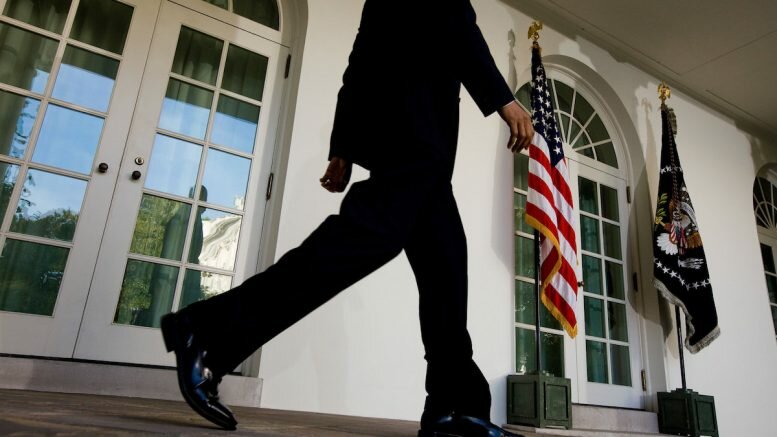The 2020 United States elections are coming to a head. Here’s an overview of the US government – plus, an expert’s opinion on US-Norway relations in light of the elections.
In this article, we’re diving into what, if anything, the United States election will mean for Norway.
Let’s begin with a super-simple overview of the US political system.
Governance of the United States
The supreme law of the United States is the Constitution, ratified on September 17 of 1787. The Constitution is the source of governmental powers and regulations in the US.
The federal government of the US is based on three branches: Legislative, Executive, and Judicial. It’s intended to function as a system of checks and balances, in which each branch holds equal power.
The Legislative Branch‘s power is vested in Congress, which is made up of the House of Representatives and the Senate. Congress has a number of rights, including enacting legislation (through the process of introducing bills), approving or rejecting propositions from the executive branch, and declaring war. Members of Congress are elected by US citizens.
The Executive Branch‘s power is vested in the President. The President acts as the United States’ head of state and Commander-in-Chief. She or he is responsible for tasks including conducting diplomacy with nations of the world, appointing heads of federal agencies, and enforcing laws given by Congress. The Vice President is also part of the Executive Branch, along with advisory bodies that act as confidants to the President.
The Judicial Branch is appointed by the President and approved (or rejected) by the Senate. The Supreme Court is the highest-level body of law in the US, and as such, it is responsible for setting legal precedents in the country.
State and local governments also play a big role in the US political system. Each is modeled after the federal government and consists of a Legislative Branch (made up of elected representatives); an Executive Branch (headed by an elected governor); and a Judicial Branch (made up of local and state courts). Institutions such as police departments, schools, and libraries are usually governed by state and local governments.
Candidates: Trump, Biden and beyond
The 2020 elections are not only presidential elections – though, with the worldwide media attention given to Donald Trump and Joe Biden, it might seem so.
These are presidential, congressional, and local elections.
So, on their ballots, voters not only choose between President and Vice President candidates, but also: Senators in Congress, Representatives in Congress, and local government candidates.
The only presidential candidates are not Donald Trump and Joe Biden, either – though, again, with the worldwide media attention given to them, it might seem so.
And, finally, to point out for the same reasons as above – the Democratic Party and Republican Party are not the only two political parties in the US.
However, they are the major political parties, and usually the first and sometimes the only to receive ballot access across all states.
Here are this year’s major presidential nominees in the United States:
Joe Biden and Kamala Harris – Democratic Party (have ballot access in all states)
Howie Hawkins and Angela Walker – Green Party (have ballot access in over half the states)
Jo Jorgensen and Spike Cohen – Libertarian Party (have ballot access in all states)
Donald Trump and Mike Pence – Republican Party (have ballot access in all states)
Over 1000 additional presidential candidates filed to run in the election this year (find a full list here). Even if a candidate does not appear on a ballot, voters can write them in.
In fact, voters can write anyone (or anything) they want on the designated “write-in” line. While some opt to write something silly like “Mickey Mouse”, others cast protest votes by filling in “None of the above”, for example.
Voting in the United States
Members of Congress, as well as state and local governmental officials, are determined by popular vote. This means, plain and simple, whoever gets the most votes from the public wins.
Here’s where it gets a bit more complicated.
The Electoral College process determines the selection of US President and Vice President. When US voters vote for a presidential candidate, they actually vote for the candidate’s electors… To vote for their chosen candidate.
So, technically, it’s not the US people who vote for the president, but the electors.
If this sounds confusing, consider the 18th-century circumstances it was enacted in. The pioneers of the newly fledged United States distrusted executive power, having just fought for independence against a monarchy. At the time, no country in the world allowed citizens to directly elect their chief executive. So, they wrestled with the notion of how to choose their new leaders.
Some believed that 18th-century eligible voters (white men aged 21 and up who owned land) didn’t have the resources to inform themselves about candidates well enough to vote for them. Some also worried that if citizens voted, a populist president could gain too much power while trying to appeal to them.
Congress wasn’t deemed trustworthy enough to choose the head of state, either; it seemed like breeding grounds for corrupt alliances between those in power.
So, the Electoral College essentially aimed to be a compromise. It began as a group of state-appointed, independent electors. They were the only people allowed to vote for President.
When the US was founded as such, therefore, the general public had no say in the presidential election.
Today, the Electoral College takes into account votes of the general public and electors most often vote according to their state’s popular vote.
Out of 45 elections, the popular vote didn’t win out five times in US history. These candidates lost the popular vote but became President of the United States based on the electoral vote:
- John Quincy Adams (1824)
- Rutherford B. Hayes (1876)
- Benjamin Harrison (1888)
- George W. Bush (2000)
- Donald Trump (2016)
There are both advocates and opponents of the Electoral College system today. Advocates usually claim that the Electoral College keeps less-populated states relevant in presidential elections. If elections were based only on the popular vote, candidates could campaign only in highly populated areas. Opponents point out that the system was created centuries ago, during a time when no US political parties existed as such. Some claim it was a flawed system to begin with.
Nonetheless the Electoral College remains in use.
Today, citizens over the age of 18 are eligible to cast their votes in the United States.
A Norwegian expert weighs in
We spoke to Dr. Hallvard Notaker, Senior Fellow at the Norwegian Institute for Defense Studies, about the upcoming US election results.
How will the rest of the world, including Norway, be affected by the upcoming US elections?
“The United States is the world’s largest military power and constitutes about a fourth of the world economy.
“Anything the US does politically can affect the rest of the world.
“The two candidates are sharply at odds over the handling of the global climate emergency.”
How do Norwegian and US politics affect each other in general? And, will there be differences in effects on Norway depending on the winning candidate?
“As a NATO member, Norway depends on the United States for its defense. We also trade with the US.
“These are long-term relationships that have traditionally not been profoundly affected by electoral swings.
“This year, however, the candidates appear to diverge more than usual in their commitment to multilateral cooperation, with Trump the more likely to weaken or even break away from established institutions. As a small state, Norway relies on such international frameworks.”
Is there room for conflict between the (leaders of) US and Norway depending on the election?
“No. Disagreements are always possible, but they will continue to be handled within the frame of close cooperation.”
Is there public discourse and/or concern in Norway over the US election results? Do you think it’s important for Norway and the US to be mutually interested in each other’s politics and leaders?
“Norwegians take a strong interest in US politics and elections and follow campaigns closely.
“Reading about other countries is always good, but we could probably spend less attention following the US and more getting to know other parts of the world,” Dr. Notaker notes of the highly publicized US presidential elections.
When getting to know any country’s politics and functionings, however, it’s important to read beyond the headlines.
Much international attention is indeed given to Donald Trump and Joe Biden, but the question could be posed how many people know that the US has three governmental branches, and how the voting system actually works.
Is it strange, from a Norwegian perspective, to have in the US (effectively) a duopoly with only two powerful political parties – Democrat and Republican?
“No. I think most people recognize that this is a traditional feature of many democracies.”
Interestingly, many democracies in the European Economic area do not, in fact, have only two powerful political parties.
We can compare, for example, the political parties of the US and the multi-party Scandinavian countries.

When will we know which presidential candidate won?
Though November 3 is Election Day, counting each vote actually usually takes a few days. However, there’s often a clear winner by the morning the next day – which, in this year’s case, would be Wednesday, November 4.
The winner of the 2020 election will be sworn in on January 20, 2021. This inauguration takes place in front of the Capitol in Washington DC.
Then, the president will take their place in the White House. Presidents in the US can serve up to two four-year terms. So, if Donald Trump wins, this will be his last term in office. If Joe Biden wins, he could hypothetically be president for the next eight years.
Only time will tell how the 2020 US election outcome will really affect the United States, Norway, and the rest of the world.
Will the US election affect Norway at all? How will the US election affect Norway? What do you think?
Let us know in the comments.
Source: Norway Today



Everyone in the world has a stake in our election, including foreign governments, and as long as foreign citizens and governments express their opinions openly, they should be welcome.
(The “dodgy dossier” circulated by British Christopher Steele (which he would not have dared to do without official permission after Iraq war whistleblower Dr. David Kelly’s “suicide”) coordinated by Senator McCain and the Democrats was an attempt at overthrowing our Constitutionally elected Trump government and was NOT appreciated.)
If President Trump is re-elected, the environment may be doomed.
On the other hand, if “liberal interventionists” Biden and Harris are elected, they will try to add Ukraine and other Russian “buffer states” to NATO, which will trigger World War 3.
The West’s neocons/”liberal interventionists” want to have their war on Russia up here in the North, so that heavily populated and invested Central and Western Europe don’t become the radioactive wasteland: we do. And as the NRK program De Glemte Rommene frighteningly showed, Norway’s civil defenses – sivillforsvarer – are in terrible shape and according to FFI only have capacity for half of Norway’s population.
2016 was a choice between erratic Trump and pro-war Hillary, but there was still a little time for the environment.
We have run out of time for the environment now, and maybe Biden and Harris are a slightly less chance of World War 3.
Our “choice” is between nightmares, but Trump’s behavior – especially in the first debate – has been intolerably embarrassing and angering, so ….